Commentary by Mahfuz Anam: Story of a ‘circular’ and its withdrawal
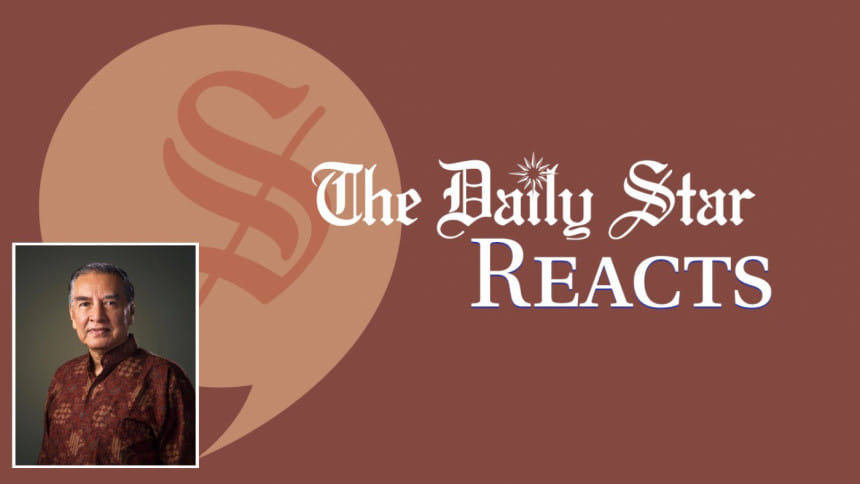
We condemn the official who issued it, commend the one who withdrew it and ask the question why was it necessary?
When the whole world is in panic and our country is deeply concerned about the pandemic and when every part of the government machinery is being (hopefully) geared to face the challenge at hand, is this how the information ministry proposed to fight the coronavirus?
On Thursday evening, the ministry issued a circular, thankfully withdrawn a few hours later, announcing the formation of a cell to monitor whether private TV channels were broadcasting misinformation or rumours regarding coronavirus. If found guilty of doing so, the "cell" would immediately stop the airing of such programmes through the intervention of the ministry. Fifteen high officials -- four additional secretaries and 11 deputy secretaries -- of the ministry were assigned, each to monitor two TV channels.
The first question that comes to my mind is how will these 15 functionaries do the monitoring? How will they identify which news is "misinformation" and which one is a "rumour" and do so on a real time basis? What will be the criteria of their decisions? Is there a common definition of what constitutes "misinformation" and "rumour"? How will they handle "breaking stories"?
What these officials have been tasked with is virtually impossible to perform. We are afraid this will lead to increased bureaucratic interference in the work of private TV channels, hampering their regular work.
Why did such monitoring of private TV channels become a necessity and the information ministry had to take it up in such a hurry? Have our private TV channels shown irresponsibility by broadcasting unfounded news? Can the information ministry cite an example of irresponsible reportage that triggered the need for this monitoring?
So why this decision to "monitor"? It is nothing but a reflection of a mindset that fundamentally mistrusts the media and refuses to see and acknowledge the positive outcome of the role it plays. Take the present coronavirus crisis for example. All our TV channels are broadcasting awareness programmes and other related stories literally round the clock. So are the print and digital media. We humbly claim that in all social crisis like floods, cyclones, dengue, etc. media have always played a highly praiseworthy and responsible role.
The ministry must know that we, as journalists, receive hundreds of so-called "news". Do we rush to broadcast or publish them? Of course not. Each of us does our due diligence -- investigate and confirm from reliable sources -- before we even consider using them. Once the decision is made, with appropriate vetting, to use a story, it is written by professional reporters and edited by another set of well-trained sub-editors. Only after this process is complete is a story broadcast and published.
The formation of such a monitoring committee misses the fundamental point that TV channels – like every professional media house - when they broadcast a programme, they take full responsibility as to its authenticity. In fact, there are established laws that hold the media liable for publishing news that is not authentic. I applaud the overall performance of our private TV channels who, in all challenging circumstances, have acted responsibly and professionally. Making such "monitoring cells" and empowering it to interfere in the day to day functioning of private TV channels is fundamentally antithetical to the principles of a free media.
If has mostly been a few Facebook posts that have caused havoc in Bangladesh by raising communal situations like in Ramu (2012), Pabna (2013), Nasir Nagar in Brahmanbaria (2016), Rangpur (2017) and Bhola (2019). These are the type of things that the government should monitor, and to the best of our knowledge, it does. Even here, there are reasonable grounds to believe that these incidents did not occur accidentally but were contrived and orchestrated by vested groups. How many of them have been punished till date?
I repeat that mainstream media in Bangladesh are mostly run by trained professionals and that they seldom broadcast or published anything that necessitates the setting up of a "monitoring cell". We in the media have never shied away from admitting that inevitable errors do occur in our work as we need to publish under strict deadline. But there are established channels of correcting them as and when mistakes occur.
Instead of forming "monitoring cells", the information ministry will be far better advised to work out "cooperation efforts". The information minister should sit with the media -- print, broadcast, digital -- and work how best we can all work together to serve the country most effectively at this moment of unprecedented challenge. We are doing it already on our own. We would be happy to come forward to assist the government in any way we can.
From our own work ethics and to maintain our own credibility with our viewers and readers we, in the media, are far more concerned and alert about any misinformation or rumours being broadcast or published as "news". There is no need for any monitoring. In fact, such a move will be counterproductive as it will put the media and the government on opposite sides when in fact we need to work together.
Post script.
A few days ago, an assistant professor and a lecturer belonging to two government colleges in two different districts were temporarily suspended pending departmental inquiry. Their crime? They have allegedly made "undesirable" and "provocative" (translation from Bangla ours) Facebook posts. Without prejudicing the departmental inquiry, we would like to ask to what extent people in government employ surrender their fundamental right of freedom of expression? From our reading of the two posts nothing was said against the government. One was a rhetorical outburst against the general state of corruption and other an expression of concern for the healthcare personnel who were not receiving personal safety gears on time. In neither case was the government criticised. And yet the two have been temporarily suspended. We have two points to make: 1) is it good for the government to supress personal views in such a manner? Do government service rules disentitle educated professionals -- they are both teachers and not bureaucrats -- from expressing concern about the country that we all profess to love; 2) couldn't a demand for explanation suffice, instead of temporary suspension?
Why is there such propensity to "punish" and " harm" instead of to engage?

 For all latest news, follow The Daily Star's Google News channel.
For all latest news, follow The Daily Star's Google News channel. 

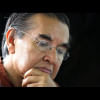


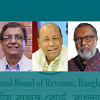
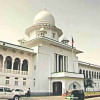

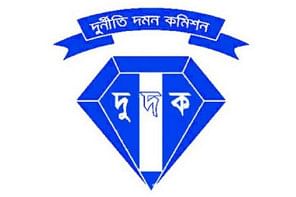
Comments